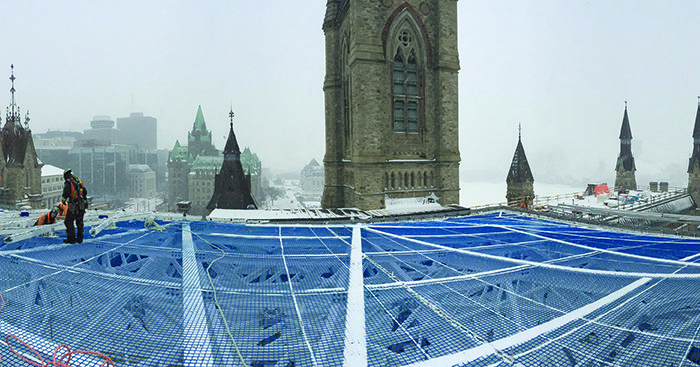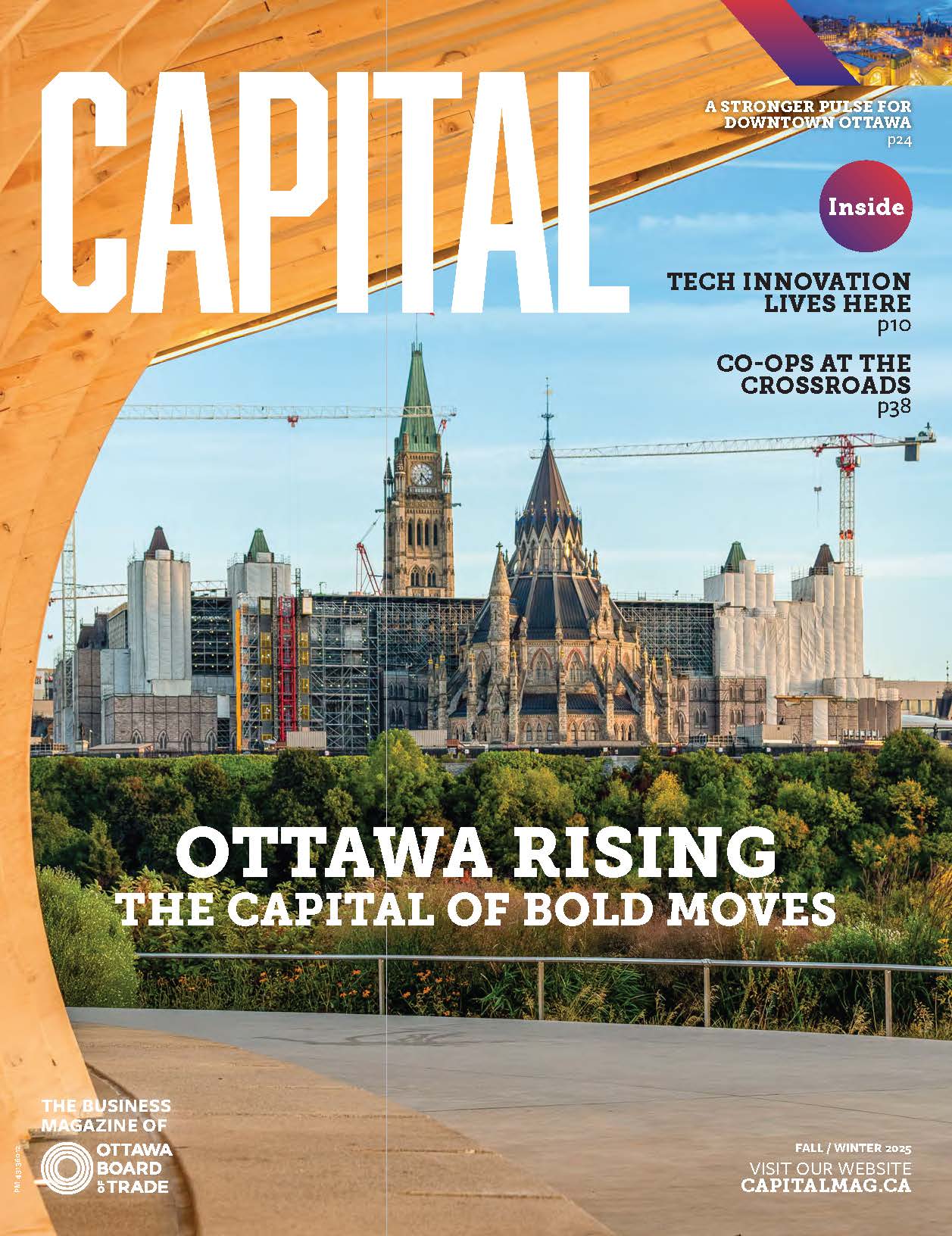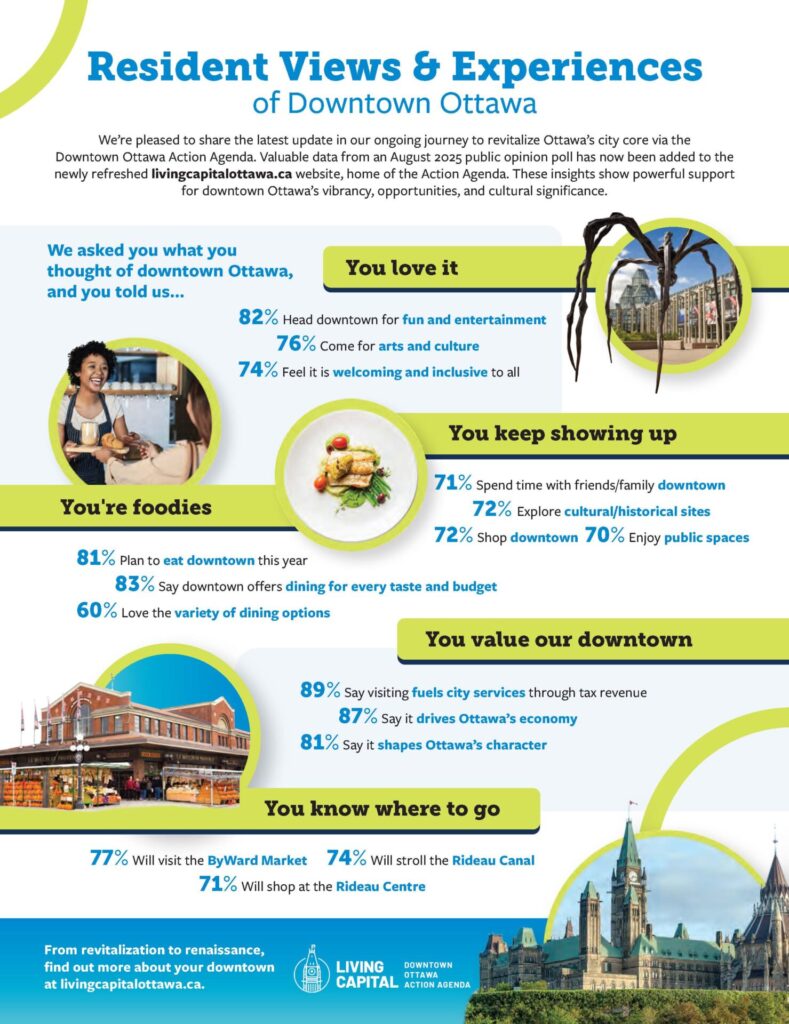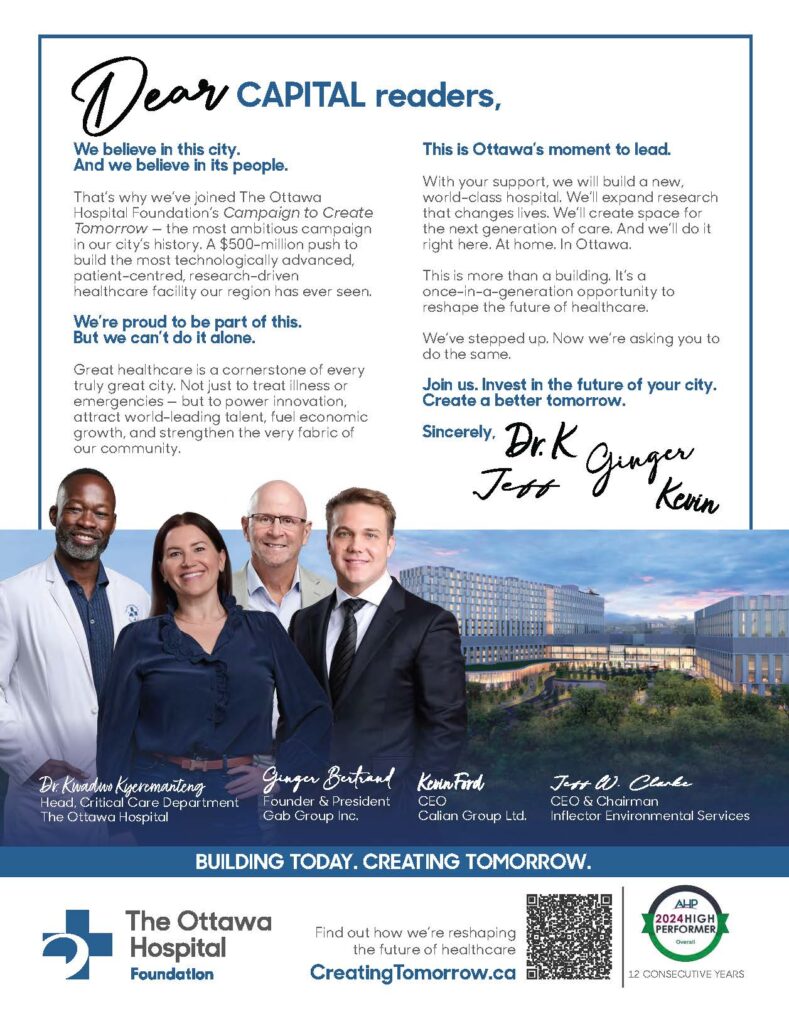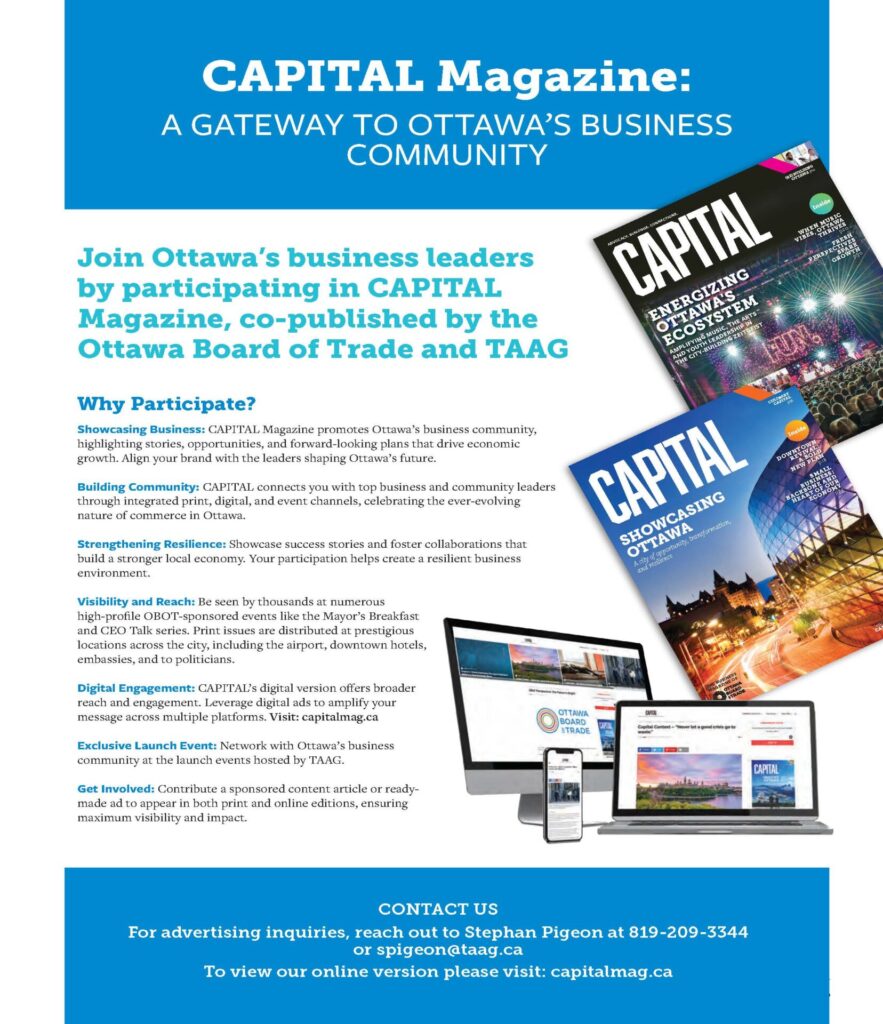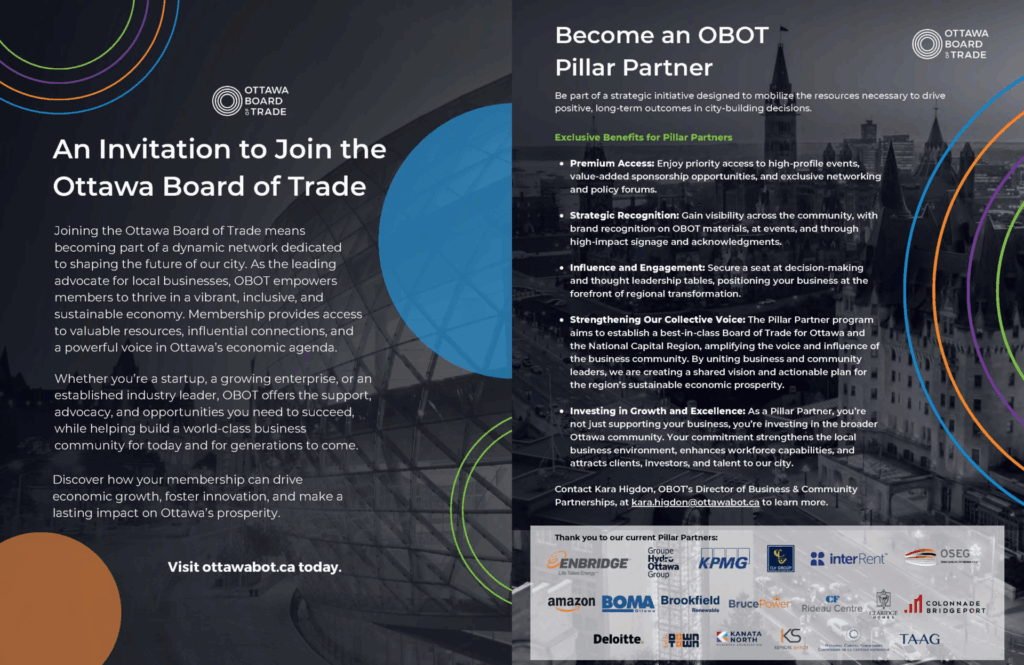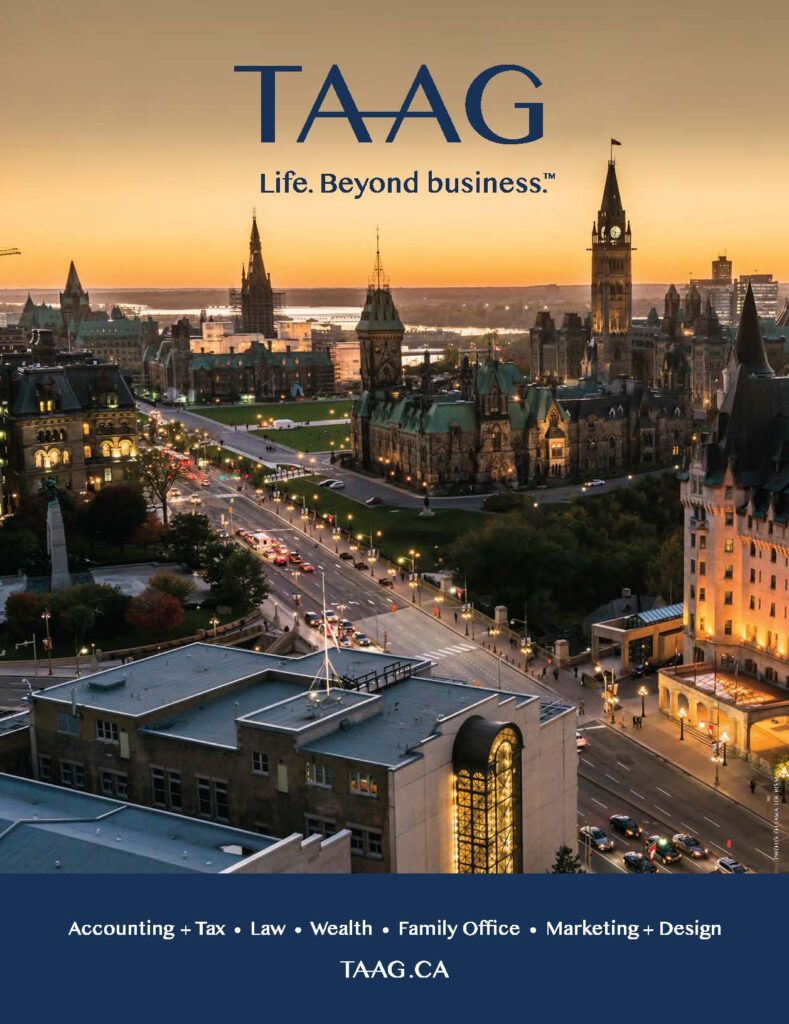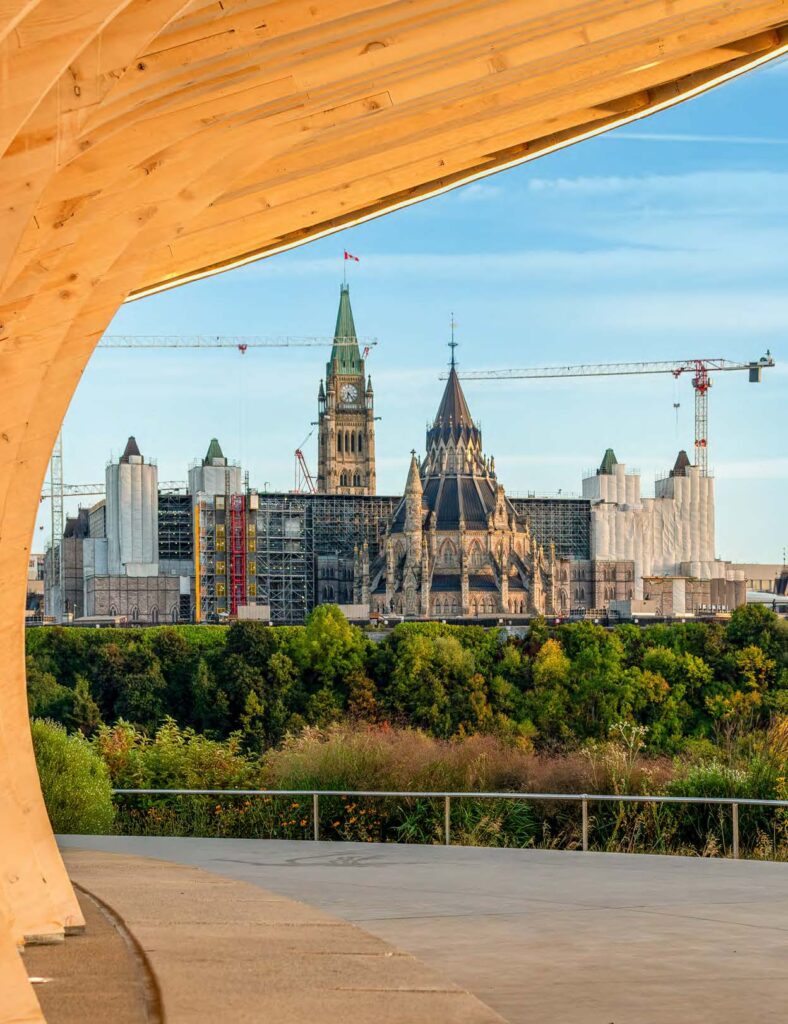Capital Context – Adopting to the Change
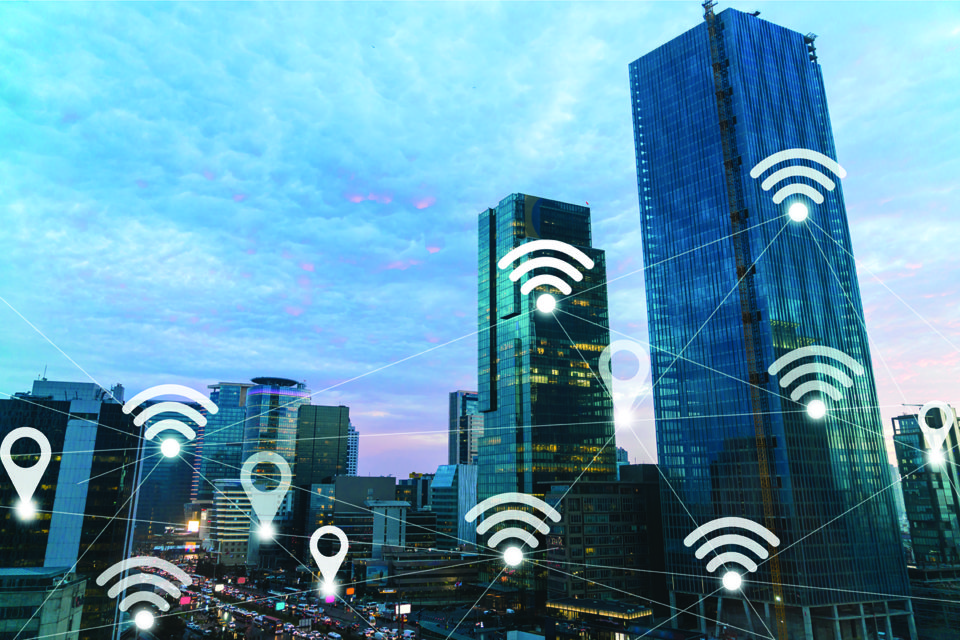
City of Ottawa makes the smart choice
By Alje Kamminga
REMEMBER THE FIRST time you encountered a traffic light? Probably not. I mean, why would you? But the fact is, when you saw that traffic light, you were looking at what might just be the first step in our continuing evolution to a world of smart cities.
Consider one widely accepted definition of a smart city: an urban area that uses different types of electronic data collection sensors to supply information to manage assets and resources efficiently.
Like traffic signals. Nearly a century has passed since traffic signals were introduced to North America but for smart cities and want-to-be smart cities, the light has been flashing green ever since.
Today, the smart city revolution is a worldwide movement. And, says Sheilagh Doherty, the City of Ottawa’s Program Manager, High Economic Impact Programs, Ottawa is ideally positioned to participate in that movement.
“In many ways, we are already a smart city,” she says. “In fact, in 2010 the Intelligent Community Forum identified Ottawa as one of the top seven intelligent communities in the world.”
While that’s clearly encouraging, no city will remain smart if it’s content to rest on its laurels. To maintain a smart city edge, cities must be constantly proactive.
The City of Ottawa, says Doherty, is definitely not taking a wait-and-see approach. If anything, it’s adopted bold and positive steps to enhance its status as a smart city. “Last year, we put together a roadmap – a smart city strategy – designed to make Ottawa an even smarter city than it is today. Called Smart City 2.0, it builds on our smart foundation by ensuring that our investments in technology are embedded in everything we do.”
Smart City 2.0 identifies three key goals:
A Connected City: Create a city where all residents and businesses are connected in an efficient, affordable, and ubiquitous way.
A Smart Economy: Stimulate economic growth by supporting knowledge-based business expansion and attraction, local entrepreneurs, and smart talent development.
An Innovative Government: Develop new and innovative ways to impact the lives of residents and businesses through the creative use of new services.
Recognizing that smart cities contribute to a smarter country, the Government of Canada is lending its support to the country’growing smart city movement.
Late last year, it launched the Smart Cities Challenge, offering a top prize of $50 million to the city that – using a smart city approach – best achieves meaningful outcomes for its residents. Ottawa is meeting that challenge head-on.
“The Smart Cities Challenge emphasizes applications that harness community input and feedback,” says Doherty. “It wants the public to help identify key challenges and potential solutions.” The city responded to that demand by immediately surveying residents for their thoughts and ideas. The residents responded in turn – nearly 900 of them – by offering ideas and providing feedback.
Government support, coupled with an aggressive approach, are vital for smart cities. But without smart people – connected people, like millennials – it is all but impossible to create and maintain a smart city. Fortunately, millennials like to live in the cities where they work. Unlike baby boomers, they prefer public transportation and urban convenience.
That’s resulted in a rise in population growth in cities, important for a smart city. In addition to providing the technological know-how that smart cities rely on, millennials have been change agents for smart urban design, considered by many to be the very foundation for a smart city. As one survey put it, millennials make cities smart by residing where infrastructure planning, technology and human sustainability intersect.
Meanwhile, the City of Ottawa will continue to take the proactive approach it believes is vital to becoming even a smarter city – and to winning the federal challenge. It’s now in the process of consulting a broad selection of community partners and stakeholders for their input. “Ottawa is fortunate in so many ways,” says Doherty.
“We’re home to approximately 1,750 high-tech companies in areas such as telecommunications, software, life sciences, clean-tech, and wireless technologies. We have a thriving entrepreneurial community. And we have a highly educated workforce with more engineers, scientists and PhDs per capita than any other city in Canada.” Add the city’s diversity, its history and culture, and its incredible selection of recreational and entertainment venues, and it becomes clear that the City of Ottawa is more than just a smart city. For a growing number of Canadians, it’s also a smart choice.
